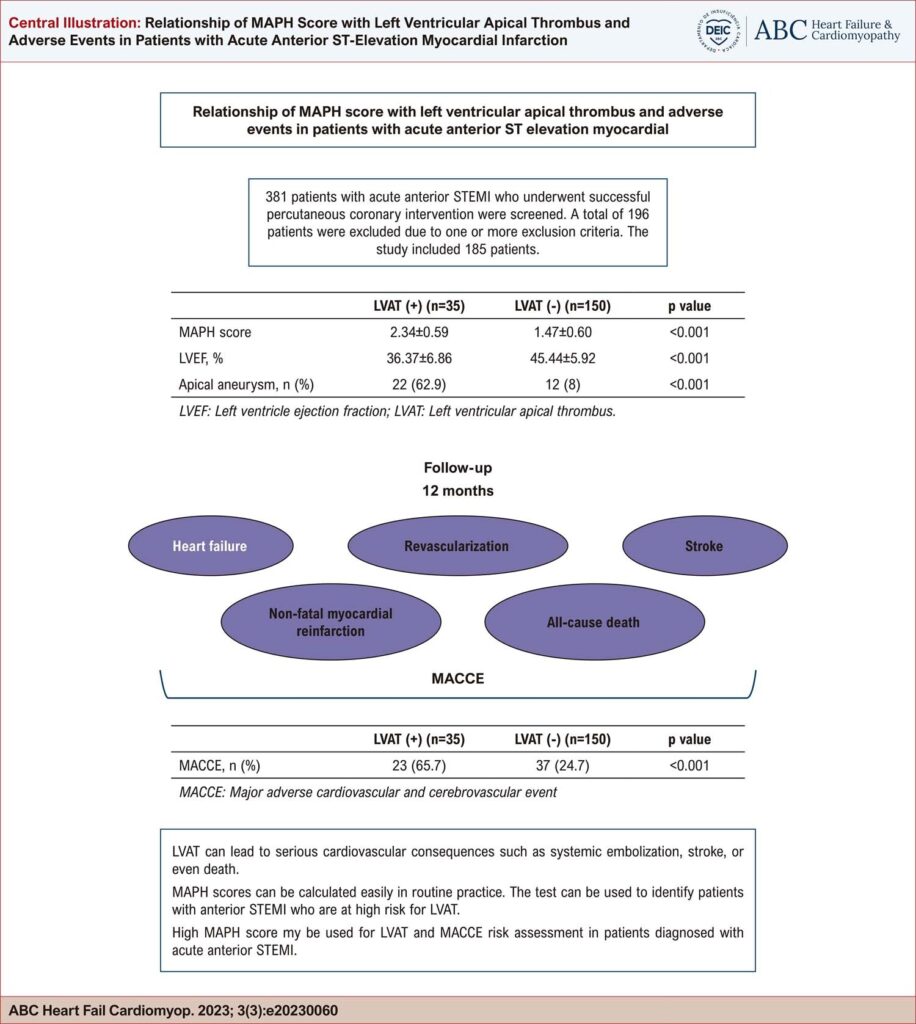ABC Heart Fail Cardiomyop 2023; 3(3): e20230060
Relationship of MAPH Score with Left Ventricular Apical Thrombus and Adverse Events in Patients with Acute Anterior ST-Elevation Myocardial Infarction
Abstract
Background
Left ventricular apical thrombus (LVAT) is a clinically crucial complication of anterior ST-elevation myocardial infarction (STEMI). The MAPH score is a newly developed thrombosis-related score. MAPH scores are simple scores that estimate blood viscosity and thrombus sensitivity.
Objective
This study aimed to explore the relationship of MAPH score with LVAT and major adverse cardiovascular and cerebrovascular events (MACCE) in patients with acute anterior STEMI.
Methods
The study included 185 patients with acute anterior STEMI who underwent percutaneous coronary intervention (PCI). LVAT was detected and divided into two groups in clinical follow-up after PCI. MAPH score obtained before PCI was compared between the groups, and its relationship with MACCE was examined. The MACCE included a combination of all-cause death, non-fatal myocardial infarction, target vessel revascularization, heart failure, and stroke.
Results
MAPH score was higher in patients with LVAT than those without LVAT (p < 0.001). High MAPH score was determined to be a predictor of LVAT [odds ratio (OR): 1.265; 95% confidence interval (CI): 1.124-1.423; p < 0.001] and MACCE [hazard ratio (HR): 1.345; 95% CI: 0.984-1.790; p = 0.004] in patients with acute anterior STEMI. A high MAPH score was associated with a higher overall incidence of MACCE in Kaplan-Meier analyses. The cut-off values of the MAPH score for LVAT and MACCE were determined to be 2, based on receiver operating characteristic curve analysis.
Conclusion
A high MAPH score may be used for LVAT and MACCE risk assessment in patients diagnosed with acute anterior STEMI.
637


